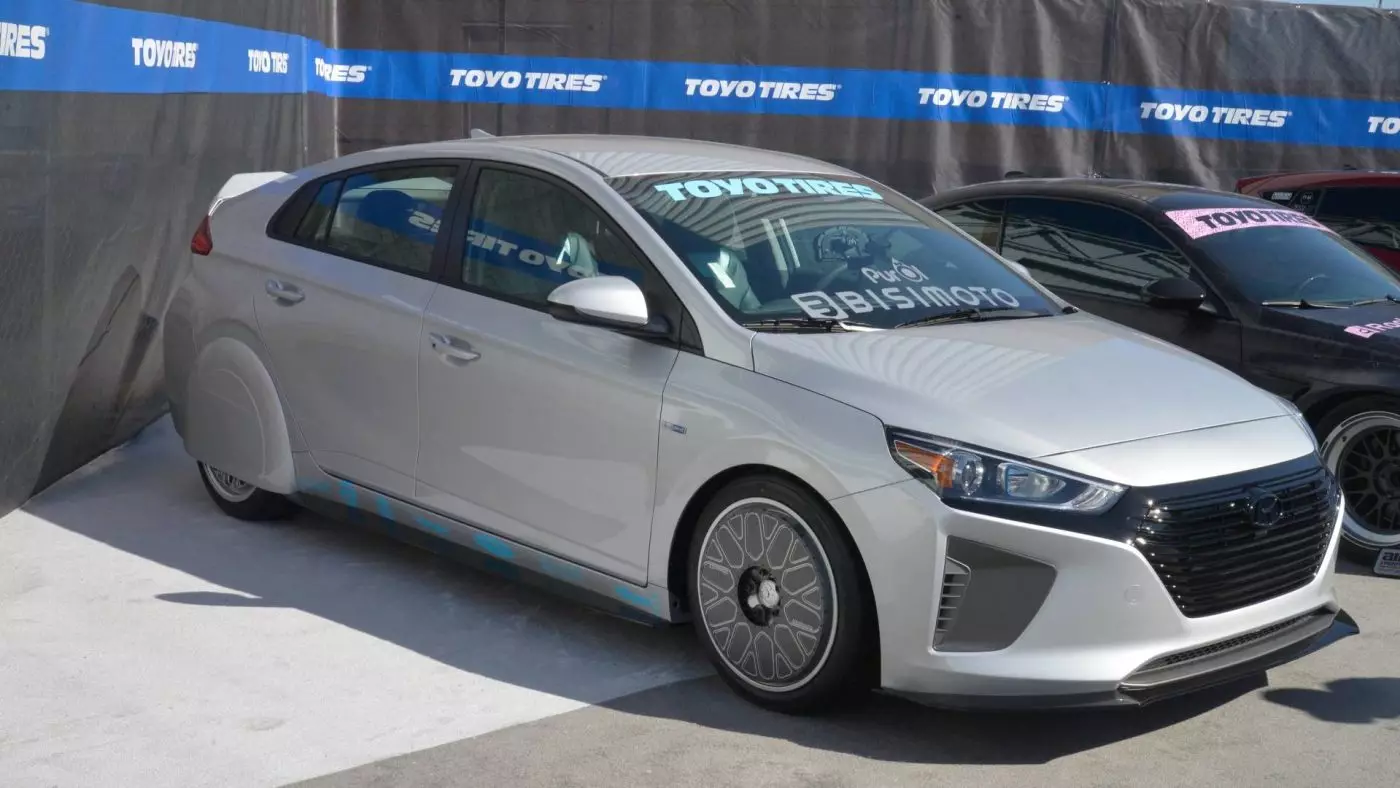Hyundai brought another type of automotive transformation to SEMA. Rather than looking to increase performance on the drag strip or any other circuit, the Korean brand took the hybrid Ioniq and tried to maximize its efficiency.
The Hyundai HyperEconiq Ioniq project
The Hyundai HyperEconiq Ioniq resulted from a partnership between the Korean brand and Bisimoto Engineering. The objective of this partnership was to create a prototype that would integrate the best technologies applied to economy, hypermiling and friction reduction in order to amplify the efficiency of the already efficient Ioniq, without harming driving.Less friction, with competition ticks
And as we can see, the changes were substantial, covering the most diverse areas. Bodywork differences stand out for optimized aerodynamics: covered rear wheels, aerodynamic splitters at the front and sides and a new rear spoiler. The suspension is now composed of coilovers, which reduce the height to the ground and the tires are of low rolling resistance. The brake calipers are also made of aluminium.

HyperEconiq Ioniq uses a new set of spark plugs from NGK and a low friction Elite Synthetic Oil 0W20 from PurOl. The exhaust system is specific to Bisimoto, optimizing volumetric efficiency and receives a new self-diagnostic system (OBD) from Racepak. The electrical part of the powertrain has also been optimised.
Despite the focus on efficiency, some of the changes look like something straight out of a racing car: 19-inch carbon fiber wheels from Carbon Revolution and Pole Position bacquets from Recaro.
HyperEconiq Ioniq was consuming much less
In the US, the Ioniq Hybrid has an official average consumption between 4.06 and 4.28 l/100 km (there are several versions of the model). It is therefore interesting to know what effect the changes made had. Bisimoto announces for the HyperEconiq Ioniq consumptions of less than 3.0 l/100 km, having managed to reach 2.83 l/100 km in its internal tests . Pro-consumer tuning? It seems to me a new world of possibilities.
